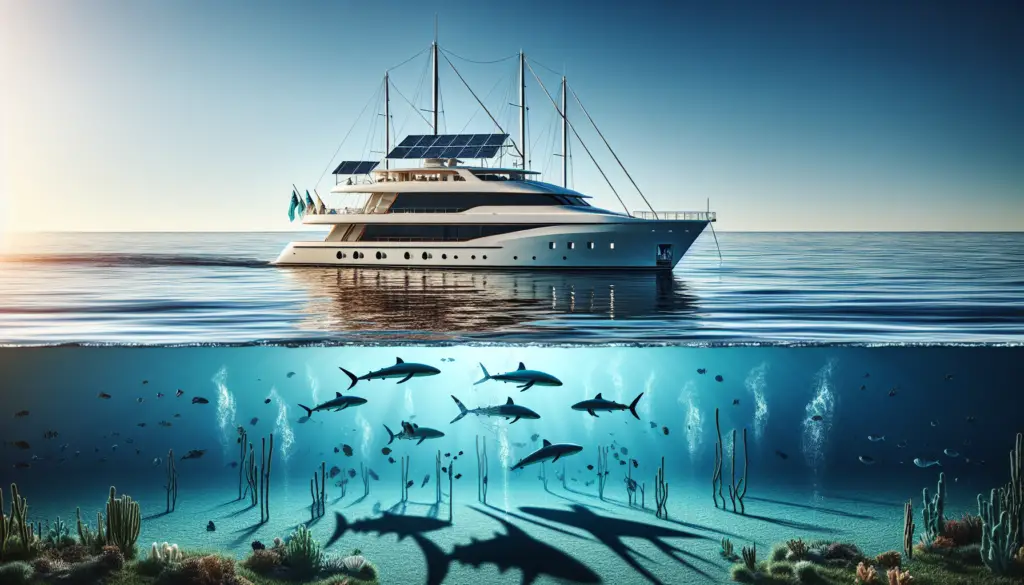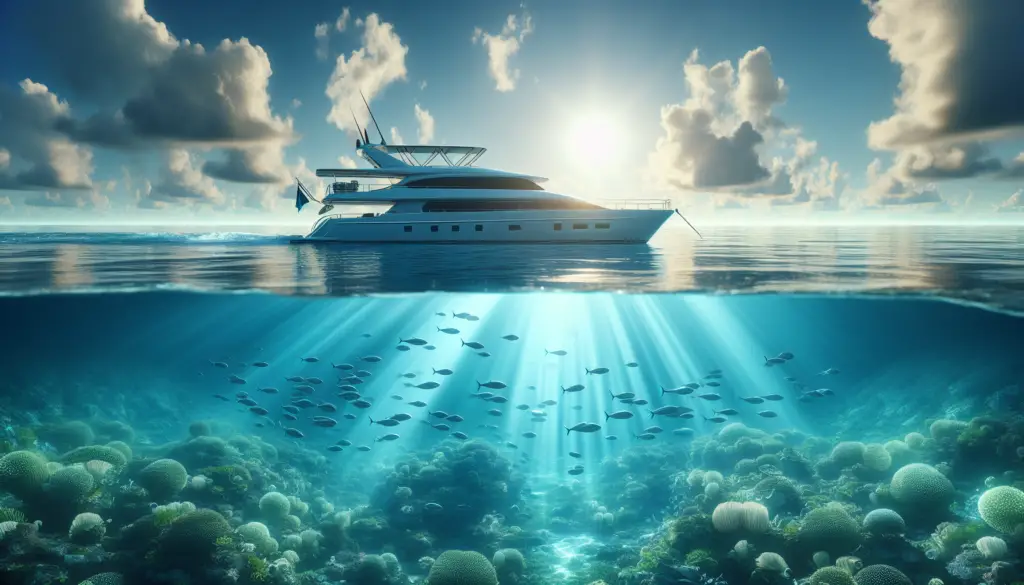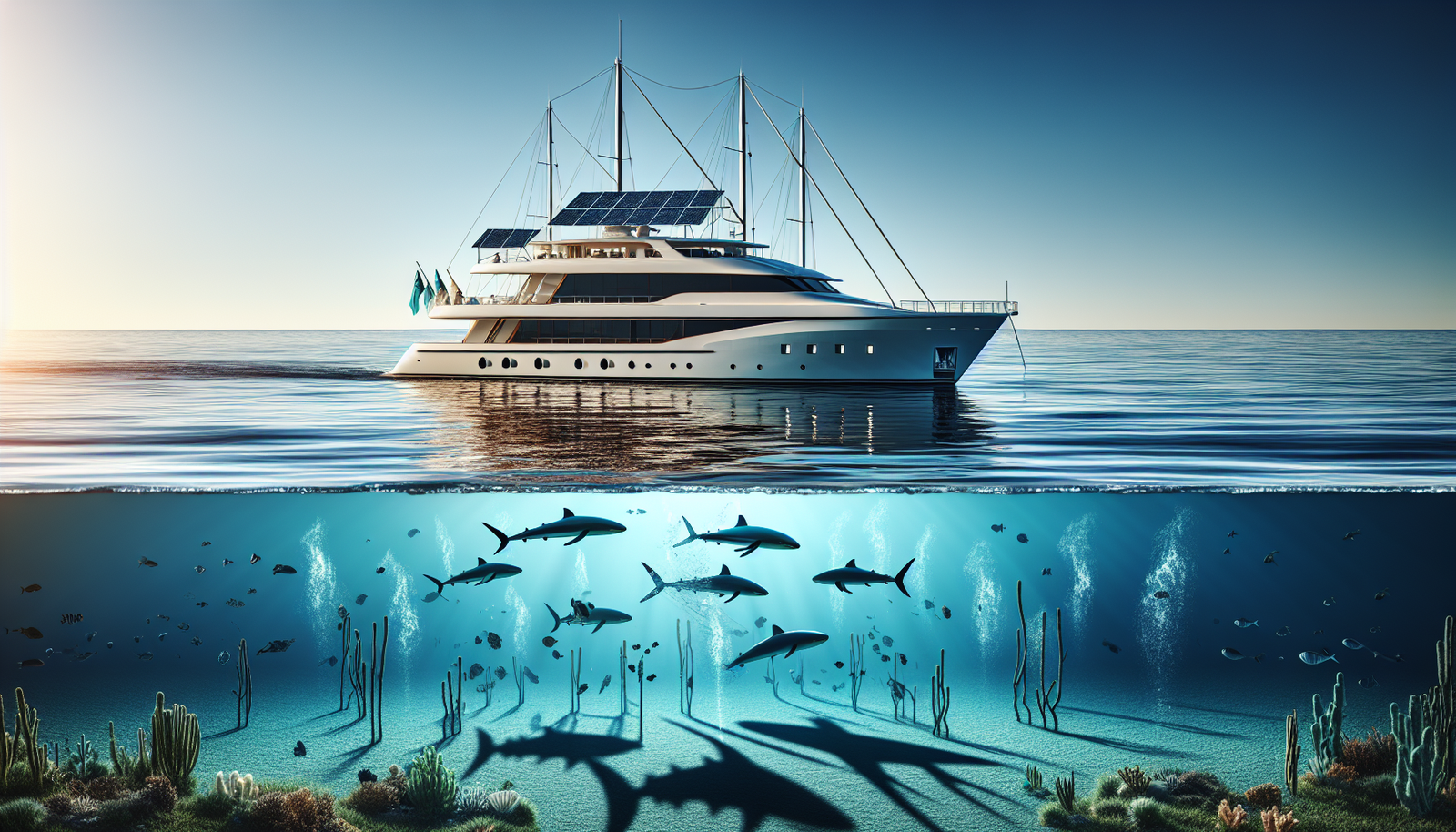Imagine sailing across the serene, azure ocean with the comforting warmth of the sun on your face and a gentle breeze sweeping through your hair. Now picture that same tranquil scene, but with water covered in oil spills, floating plastic debris, or other pollutants, curtailing the beauty and tranquility. That’s where the critical subject of eco-friendly boating advocacy and Activism takes center stage. This article will shed light on what this advocacy is all about, why it’s of utmost importance, and what actions you can take in your daily boating practices to create a significant impact. Let’s strive together to sustain the beauty of our oceans and ensure they remain inviting for future generations.

Understanding the Importance of Eco-friendly Boating
Have a seat, make yourself comfortable. Today, you’re going to dive into a whole new world of eco-conscious boating. From understanding marine ecology to witnessing the impact of our traditional boating activities on the environment, it’s all about acknowledging the need for responsible, eco-friendly choices.
Understanding marine ecology
You see, marine ecology isn’t solely about the ocean and its vast spectrum of species. It’s also about the interaction between organisms and the environment. The constantly changing factors like temperature, light, and nutrients all play a significant role in maintaining the balance in marine ecosystems. From the tiniest plankton to the enormous blue whale, every element plays an integral part in this complex web of life.
Importance of eco-friendly activities in boating
In the grand scheme of this delicate ecosystem, boating activities represent both a leisurely escape and a heavy footprint. Eco-friendly boating is much more than a fervent trend. It’s a necessary shift toward the protection of our aquatic ecosystems. As you immerse in the world of boating, remember the responsibility that comes with the thrill of navigating the waters.
Impact of boating activities on marine environment
Now, I’m sure you’re wondering, exactly how do traditional boating activities impact our marine environment? Well, think of the harmful chemicals from cleaning products, the engine noise, the waste disposal, and the physical disturbance caused by high speeds and wakes. All these factors contribute to water pollution, disrupt life underneath the waves, and gradually degrade the fragile marine ecosystems.
Eco-friendly Boating Practices
Alright, let’s steer this into a more positive path. Know that your passion for boating doesn’t have to conflict with your commitment to the environment. Let as look at some eco-friendly boating practices, shall we?
Use of green cleaning products
Vintage or brand-new, your vessel needs good upkeep. However, this doesn’t have to involve potent chemicals. Green cleaning products, made with environmentally-friendly ingredients, can do the trick as well, without poisoning our waters.
Creating less wake
While cutting across waters at high-speed may be a thrilling experience, you should know that it can harm aquatic creatures and lead to shoreline erosion. So, how about the next time you set sail, you enjoy a more leisurely pace?
Reducing speed near shorelines
Speaking of pace, remember to always reduce your speed when you’re near shorelines. This practice not only ensures safety but also helps to minimize erosion and protect nearshore marine life.
Disposing waste properly
Out on the open water, make sure you treat it like your home. Keep trash secure until you can properly dispose of it on land. Every piece of waste that ends up in the ocean disrupts the life cycle in our marine ecosystems.
Using renewable energy sources for propulsion and power
Consider using renewable energy sources to power your boat. Solar panels, wind turbines and even hydrogen fuel cells can be brilliant at reducing your carbon footprint.
Equaling Boating Safety with Sustainability
There’s many a slip between the cup and the lip. You must marry sustainability with safety onboard to ensure productive eco-friendly boating.
Implementing eco-friendly boating practices while ensuring safety
Try to incorporate safety gear made from sustainable materials. Also, remember to use bilge filters to avoid any accidental oil or fuel leaks.
Use of non-toxic materials and products
Opt for non-toxic paints and varnishes for your boat. This way you can reduce the number of harmful chemicals entering our oceans.
Safe and eco-friendly boat disposal
In the end, responsibly dismantling your faithful vessel is just as crucial. Safe disposal techniques can help limit pollution and negative impacts on aquatic life.
Advancements in Eco-friendly Boating Technology
Thankfully, the boating arena is always evolving, and emerging technologies stand to revolutionize our approach to eco-friendly boating.
Sail power versus engine power
Sail power is the oldest and the greenest way to propel a boat. As opposed to motor boats, sailboats lack the noise and air pollution associated with engines.
Sustainability-focused design and construction
Manufacturers are now designing boats with sustainability at their core. Using lightweight materials can significantly reduce fuel consumption.
Innovations in solar and wind propulsion
Advancements in technology are paving the way to greener propulsion methods. Think solar-powered electric engines and wind-assisted freighters.
Hybrid and electric boats
Much like cars, boats too are going electric. Hybrid and electric boats produce fewer emissions and are more energy efficient.

Initiatives to Promote Eco-friendly Boating
There are numerous initiatives out there looking to make boating greener.
Public Awareness Campaigns
Through public awareness campaigns, organizations aim to educate boaters about the necessity of eco-friendly practices.
Green Certification Programs for Marinas
green certifications for marinas work as an effective incentive, encouraging them to implement eco-friendly practices.
Government Policies and Regulations
Governments are also stepping up, enacting policies and regulations aimed at making boating more sustainable.
Role of Boating Industry in Eco-friendly Advocacy
The boating industry has a significant role in the journey towards eco-friendly boating.
Corporate social responsibility
Corporations are increasingly recognizing their social responsibility to act in more eco-friendly ways.
Manufacturing of eco-friendly boats
Boat manufacturers are innovating their practices and opting for materials and methods that lessen the impact on the environment.
Promoting clean boating initiatives
Companies are also working to promote clean boating initiatives among their customers.
Eco-Friendly Boating Advocacy Groups and Their Work
A number of advocacy groups work tirelessly to promote and encourage eco-friendly boating.
Ocean Conservancy
Ocean Conservancy leads the fight against ocean pollution and advocates for sustainable choices.
Blue Frontier
Blue Frontier works to safeguard marine sanctuaries and promotes sustainable techniques in boating.
Green Boat Initiative
The Green Boat Initiative works to raise awareness about the need for eco-friendly boating.
Advocacy and conservation efforts
All these groups, along with others, devote their efforts to advocacy, fundraising, educational campaigns, and more to preserve our marine ecosystems.
Impacts of Climate Change on Boating
While boating impacts our marine environment, climate change, in turn, is impacting boating.
Rising sea levels
Rising sea levels can drastically change traditional boating routes and marina structures.
Increase in storm intensity
More intense storms mean dangerous conditions for boaters and can lead to more pollution from damaged vessels.
Changes in marine species populations
Fluctuating marine populations can affect the boating experience as well as the fishing industry.
Active Participation in Eco-friendly Boating Activism
A little activism goes a long way. Here’s how you can pitch in.
Participation in clean-up drives
Cleanup drives offer a direct way to contribute to preserving marine environments.
Volunteering for advocacy groups
Consider volunteering with advocacy groups to help spread the message and engage in active conservation efforts.
Taking individual initiatives
Small individual initiatives like picking up the trash you see floating in the water can make a huge difference.
Future of Eco-Friendly Boating
Let’s sail into the future, shall we?
Predictive trends in eco-friendly boating
We can foresee many more advancements in sustainable technology in the boating industry, with manufacturers favoring eco-friendly designs and materials.
Future challenges
However, challenges lie ahead, with the need to balance leisure with the increasing urgency for conservation measures.
Possible solutions and innovations
Despite the challenges, the future holds potential for solutions and innovations that will make eco-friendly boating the standard, not an exception. Together, we can plot a sustainable course forward.


[…] skills while minimizing your impact on the world’s most precious resource? The article “eco-friendly boating education and certification Programs” is here to assist you in your quest. It’s a detailed exploration of how you […]
[…] evident that boating activities need to be conducted in a more eco-friendly manner. eco-friendly boating plays a significant role in preserving biodiversity. It not only minimizes the harmful impacts on […]